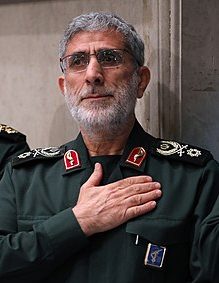In a twist that sounds straight out of a spy thriller, Iran’s top military general, Esmail Qaani, reportedly suffered a heart attack while undergoing intense interrogation amid explosive allegations of espionage. The 67-year-old leader of Iran’s powerful Quds Force, a branch of the Revolutionary Guard Corps, was whisked away to a hospital following a grueling session where he was questioned about Israel’s recent assassination strikes on Hezbollah leaders. The interrogation comes amidst spiraling rumors that Qaani, long considered a hardliner, may have betrayed Tehran to Israel.
Qaani’s disappearance, which had even his own family in the dark, began after Israel’s recent strike in Beirut killed Hezbollah chief Hassan Nasrallah and his heir apparent. Suspicion that Qaani had tipped off Israel about the meeting has rocked the upper echelons of Iran’s military, leading to a widespread probe of Quds Force officials. Iran’s Islamic Revolutionary Guard Corps (IRGC) was quick to confirm that Qaani is “alive and in good health,” but his silence only fueled speculation. Since the strike, whispers of a potential mole within the IRGC have spread, with sources close to the Guard hinting at serious concerns of Israeli infiltration.
Despite Tehran’s insistence that Qaani is performing “his daily duties,” insiders say the Quds Force commander and his inner circle remain under scrutiny. Qaani has held the Quds Force’s top spot since the death of Qassem Soleimani in a 2020 U.S. drone strike and has been essential to Iran’s regional operations. Yet the recent blow to Hezbollah’s leadership, paired with Qaani’s absence from key meetings, has cast a shadow over his loyalty.
The investigation has been brutal. According to sources close to the matter, IRGC interrogators are leaving no stone unturned in their pursuit of answers, not just regarding Qaani but also Brigadier General Abbas Nilforoushan. He was killed alongside Nasrallah after a series of targeted airstrikes believed to be based on inside information. Iranian officials say this breach was “100 percent internal,” pointing fingers within their own ranks.
As Iranian authorities scramble to root out potential leaks, the drama underscores the precarious nature of Iran’s intelligence security amid growing tension in the Middle East.












